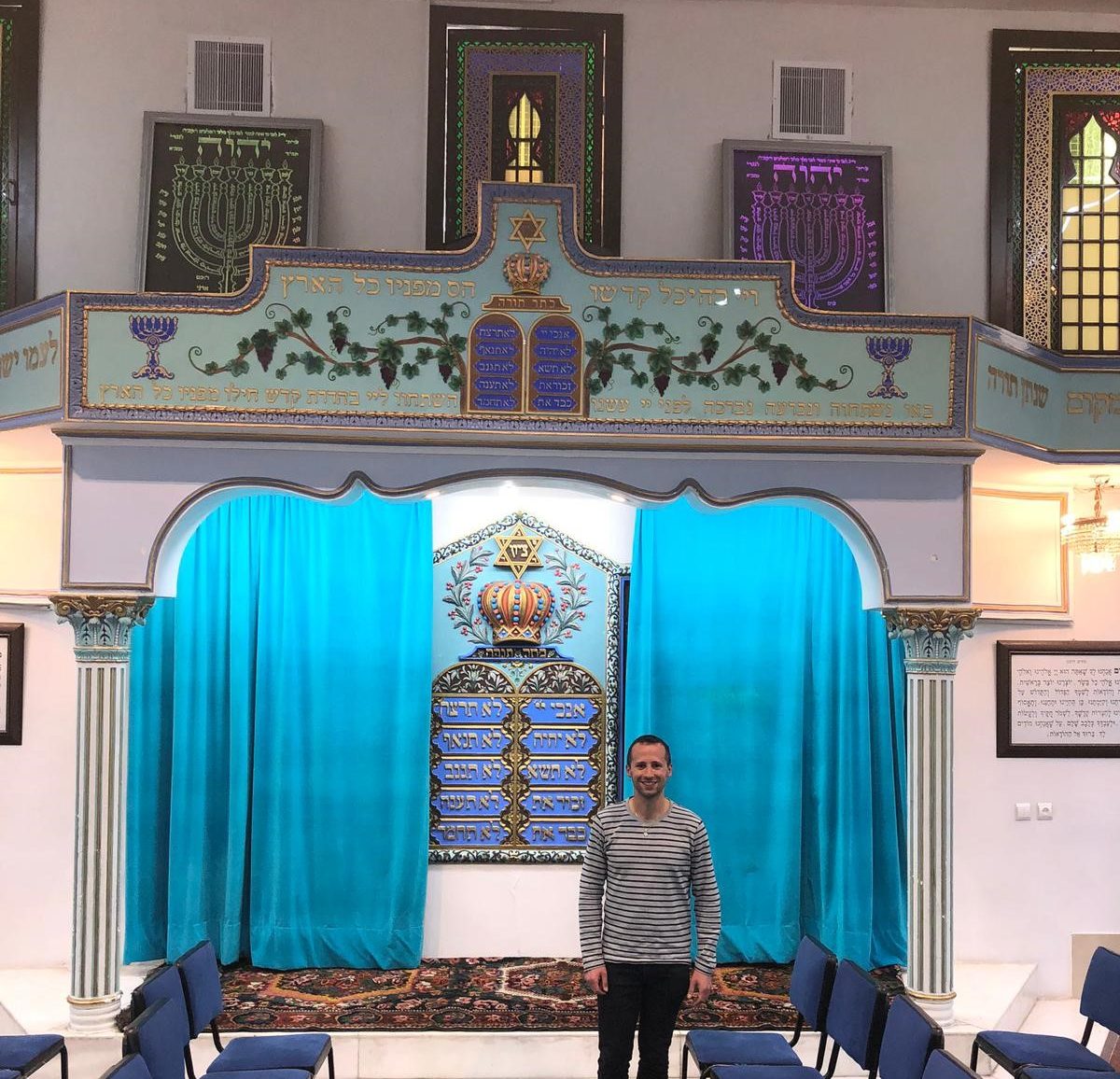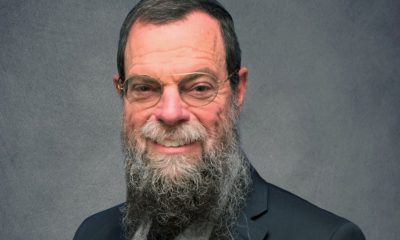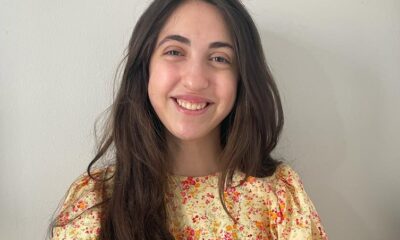
Parshot/Festivals

Ten days in Iran, one day discovering isolated community
Published
3 years agoon
By
Dan BrotmanMuch to my parents’ dismay, two years ago I spent 10 days in the Islamic Republic of Iran. Persian and Jewish history are intertwined, with Jews having lived in what’s now Iran for more than 2 500 years.
King Cyrus the Great, whose tomb we visited, liberated the Jews from Babylonian captivity in 538 BCE, and issued an edict for Jews to return to Jerusalem to rebuild the Second Temple. Every year, Jews around the world celebrate the festival of Purim, commemorating the heroic actions of Queen Esther, who saved us from Haman, an Achaemenid Persian Empire official who was planning to kill all the Jews.
Her tomb and that of her cousin, Mordechai, are located in the city of Hamadan. My namesake, Daniel, was thrown into a pit by Darius the Mede, protected by an angel, and is buried in the town of Shush.
On the eve of the Islamic Revolution, Iran had full diplomatic relations with Israel and was home to a Jewish population of about 100 000. The revolution and its aftermath resulted in the severing of diplomatic relations between Iran, Israel, and the United States, and most of the Jewish community departed for those two countries. Today, the Jewish community in Iran consists of fewer than 10 000 individuals.
Although our tour schedule was packed, I was determined to find a way to connect with the local Jewish community. Our Muslim guide, Mohammad, was instrumental in helping me achieve this goal. When our tour group happened to be in Isfahan on a Friday evening, Mohammad was able to ask around and secure the address for the Mullah Jacob Synagogue.
At sunset, he and I walked the streets searching for the elusive building. At some point, he stopped a random young boy on the street to ask for directions. To our astonishment, the boy replied, “Follow me, I’m on my way there now to pray!” I followed the boy to the synagogue, where I removed my shoes at the entrance, as per local custom. I was initially received with stares, as foreigners are meant to get official permission from the government before visiting any Jewish institutions.
Although I had turned up unannounced and visibly stood out like a sore thumb, a young congregant who spoke English came to sit next to me, where we spoke intermittently throughout the service about what it’s like to be Jewish in the Islamic Republic. I noticed that the large Star of David outside the synagogue was covered up, as the Star of David is viewed in the Islamic Republic as a controversial political symbol linked to Israel and Zionism.
Through Mohammad’s persistence, halfway through the trip, the tour company was finally able to secure clearance for me to visit Jewish institutions. I had one full day at my disposal after our tour ended which I intended to use to see as much of the local Jewish community as I could. I brought my passport to the offices of the Tehran Jewish Community, the official organisation representing Iranian Jewry. The office administrator issued me with a stamped letter in Persian, which I was to take to each Jewish institution I would visit later that day. I was then met by a young lawyer representing the Jewish community, who accompanied me to meet the community’s president. The president was friendly but clearly guarded in his language and demeanour. I then took a taxi to one of the city’s four kosher restaurants, which surprisingly didn’t advertise itself as kosher on its signage and didn’t display a mezuzah on its doorpost. I proceeded to attend prayer services at the Abrishami Synagogue, located on Palestine Street. The street name is noteworthy, as once the Islamic Republic had broken off relations with Israel in 1979, it handed the Israeli embassy over to the Palestine Liberation Organisation, and renamed the road in front of the mission Palestine Street.
Through a friend of a friend in South Africa, I had been put in touch with Arash Abaie, an active member of the Tehran Jewish community who teaches Judaism at the University of Religions and Denominations. We met for coffee towards the end of my last day, right before I was to head to the airport. At the end of our conversation at Lamiz Coffee, a local Starbucks-like chain, I spontaneously asked him, “If I were able to secure the funding, would you be willing to come to South Africa to speak about Jewish life in Iran?” He said he would, although I wonder in retrospect how serious he thought I was about making such a visit happen. Within several weeks of arriving back in South Africa, I had secured funding to bring him to Johannesburg and Cape Town to speak at Limmud South Africa, the Rabbi Cyril Harris Community Centre, and the Pretoria Hebrew Congregation, where he spoke about Jewish and Muslim coexistence in Iran, Persian-Jewish history, and Iran’s Jewish pilgrimage sites. The Holocaust isn’t taught at Jewish schools in Iran, and it was thus particularly meaningful when I took Abaie and a fellow Iranian-Jewish traveller to meet local Holocaust survivors at the Johannesburg Holocaust & Genocide Centre.
Although many thought I was reckless to travel to Iran as a Jew, it was one of the most memorable trips of my life, and gave me the opportunity to interact with a tight-knit community that is isolated from the rest of the Jewish world. By bringing Iranian Jews to South Africa and creating additional platforms for them to interact with diaspora Jewry, I’m hoping that we can learn more about their unique Jewish experience as well as give them a greater sense of camaraderie with other Jewish communities, in spite of their isolation. I hope one day to make a second trip to Iran, and this time I will make sure to visit Hamadan and Shush in honour of Purim.
- Dan Brotman is a former resident of South Africa, and is currently the executive director of the Windsor Jewish Federation & Community Centre in Windsor, Canada. He is hosting a virtual event with local Jews in Iran on Sunday 14 March at 18:00 South African time. For more details, please email him at dan@jewishwindsor.org.










